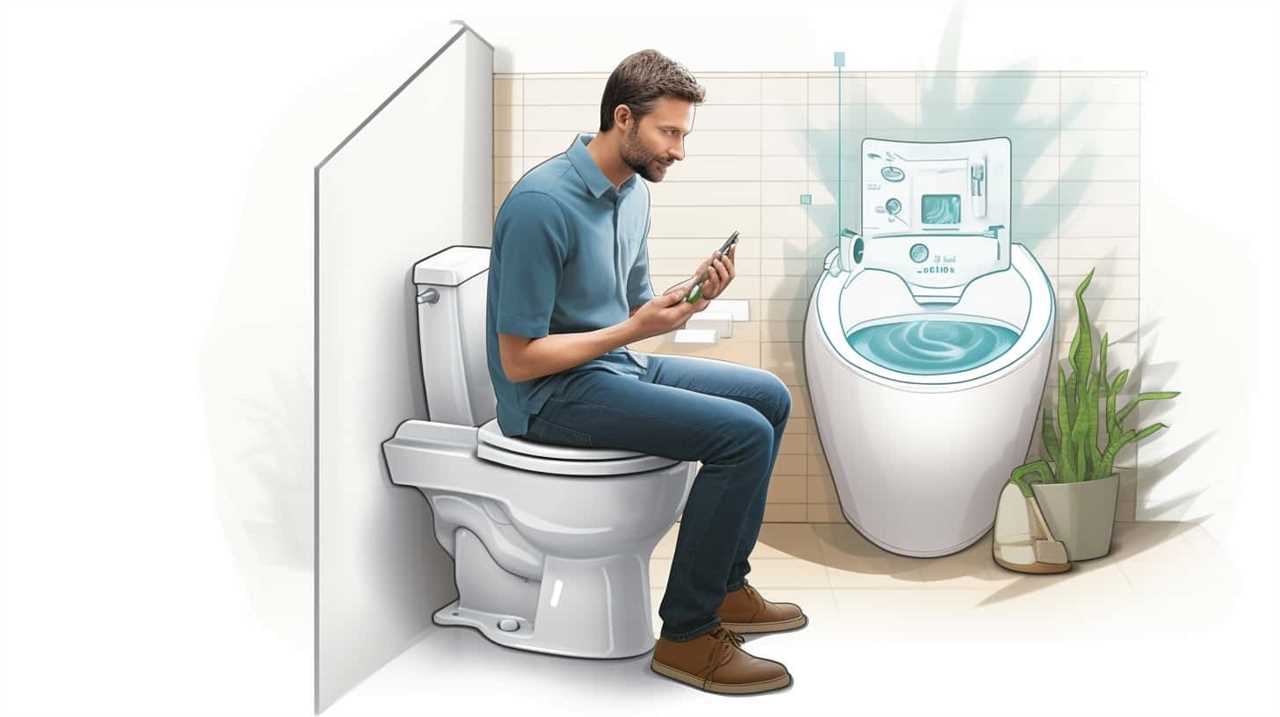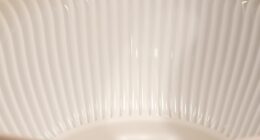We’ve all encountered this scenario: you’re done using a wipe only to find out it can’t be flushed. What’s the next step?
In this article, we’ll share the best ways to handle non-flushable wipes and ensure proper disposal.
From recycling options to alternative uses, we’ve got you covered.
Join us as we explore eco-friendly alternatives and learn how to make sustainable choices for a cleaner future.

So, let’s dive in and discover what to do with wipes if you can’t flush them!
Key Takeaways
- Use a designated trash bin for non-flushable wipes to prevent plumbing blockages.
- Check with your local recycling facility for specific guidelines on recycling wipes.
- Always dispose of wipes in a suitable trash container.
- Opt for reusable cloth wipes made from organic materials like bamboo or cotton.
Proper Disposal Methods for Non-Flushable Wipes
When it comes to disposing of non-flushable wipes, we recommend using a designated trash bin. This is because non-flushable wipes don’t break down like toilet paper and can cause serious blockages in the plumbing system.
However, if you’re concerned about the environmental impact of using non-biodegradable wipes, there are biodegradable options available on the market. These wipes are made from materials that can decompose naturally over time, reducing their impact on the environment. If you have a composting setup, you may even be able to compost these biodegradable wipes. Just make sure to follow proper composting techniques to ensure the materials break down properly.
Now, let’s move on to discuss recycling options for used wipes.

Recycling Options for Used Wipes
To recycle used wipes, we can explore various options that help reduce waste and promote sustainability. Proper disposal is crucial to minimize the environmental impact of these non-flushable items. While many wipes are not easily recyclable due to their composition, some recycling facilities accept certain types of wipes. It’s important to check with your local recycling facility to see if they accept wipes and what specific guidelines they have in place. Additionally, another eco-friendly option is composting. Some wipes, particularly those made from natural fibers like bamboo or cotton, can be composted in home compost bins or taken to composting facilities. Composting allows the wipes to break down naturally and turn into nutrient-rich soil. By exploring recycling and composting options, we can contribute to a more sustainable future.
| Recycling Facilities | Composting Options |
|---|---|
| Check with local recycling facility for specific guidelines | Compost wipes made from natural fibers like bamboo or cotton |
| Some facilities may accept certain types of wipes | Use home compost bins or take to composting facilities |
| Ensure proper sorting and disposal | Contribute to nutrient-rich soil |
| Promote sustainability and reduce waste |
How to Safely Dispose of Wipes in the Trash
We should always dispose of wipes in the trash using a suitable container. This is the safest method to ensure proper disposal and prevent any negative impact on the environment.
When throwing away wipes, it’s important to use a trash bag or bin that’s lined with a garbage liner. This will help contain the waste and prevent any leakage or odors.
Additionally, it’s crucial to tie the bag securely before placing it in the larger trash bin. By disposing of wipes in the trash, we can ensure that they end up in a landfill, where they’ll break down over time.

This is the most responsible way to handle these products and minimize their contribution to landfill waste.
Alternative Uses for Non-Flushable Wipes
As we consider alternative uses for non-flushable wipes, it’s important to explore practical ways to repurpose these products in our daily lives. While they may not be suitable for flushing, there are still many creative applications for these wipes.
One idea is to use them for cleaning purposes. Non-flushable wipes can be great for wiping down surfaces, such as countertops or tables, as they’re designed to be durable and effective at removing dirt and grime.
Additionally, they can be repurposed for personal hygiene, such as wiping off makeup or freshening up on-the-go.

Another option is to use them for arts and crafts projects, as they can be easily cut into different shapes and sizes.
Eco-Friendly Wipe Alternatives for a Sustainable Lifestyle
When it comes to finding eco-friendly alternatives for non-flushable wipes, our focus shifts towards adopting a sustainable lifestyle. Reusable options are a great choice for those looking to reduce waste and minimize their environmental impact.
Reusable wipes, made from materials like bamboo or organic cotton, can be washed and reused multiple times, eliminating the need for single-use wipes. These options aren’t only better for the planet but also cost-effective in the long run.
Another option is to choose biodegradable wipes, which are made from materials that break down more easily in the environment. These wipes typically contain natural fibers and ingredients that are less harmful to the planet.

Frequently Asked Questions
Can I Use Non-Flushable Wipes as Toilet Paper Alternatives?
We can’t flush non-flushable wipes, but they can be used as toilet paper alternatives during the toilet paper shortage. However, it’s important to dispose of them properly in the trash to avoid plumbing issues.
Are There Any Specific Guidelines for Disposing of Wipes in the Trash?
For proper trash disposal, it is important to follow specific guidelines when disposing of wipes. This helps minimize their environmental impact. It’s important to know how to dispose of wipes correctly to protect the environment.
Can Non-Flushable Wipes Be Composted?
Can non-flushable wipes be composted? While composting guidelines vary, it’s important to consider the environmental impact. Non-biodegradable materials in wipes can contaminate compost and harm the ecosystem. Proper disposal in the trash is recommended.
Are There Any Health Risks Associated With Improper Disposal of Wipes?
There can be health risks associated with improper disposal of wipes, as they can clog pipes and contribute to sewage backups. Additionally, their environmental impact is significant, as they do not easily break down in water systems.

What Are Some Eco-Friendly Materials Used to Make Sustainable Wipes?
Eco-friendly wipe materials are becoming increasingly popular for sustainable wipe options. They are made from biodegradable and compostable materials like bamboo, cotton, and plant-based fibers, reducing environmental impact and promoting a greener future.
Conclusion
In conclusion, it’s important to remember that non-flushable wipes should never be flushed down the toilet. Instead, they should be disposed of properly in the trash to prevent clogs and damage to sewer systems.
If you’re looking for more sustainable options, consider eco-friendly wipe alternatives or finding alternative uses for non-flushable wipes.
Let’s make a conscious effort to protect our environment and keep our plumbing systems running smoothly.











